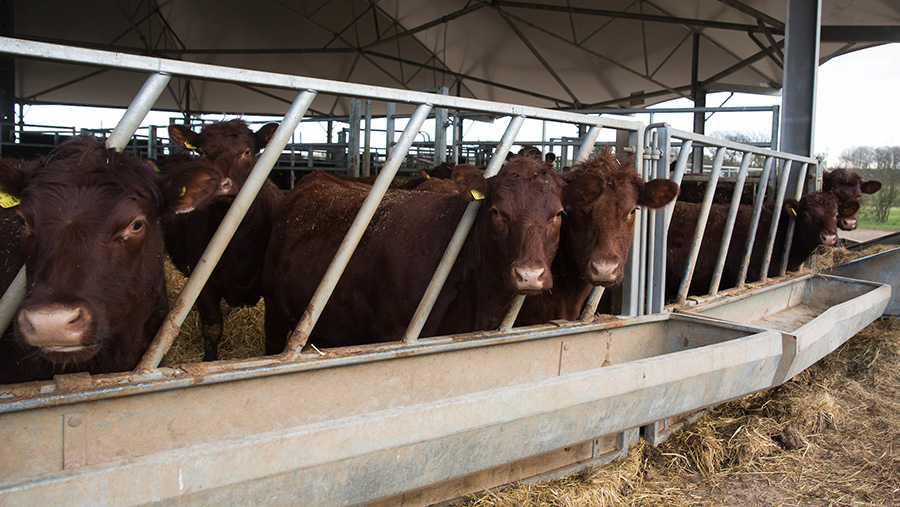High liver fluke risk warning issued
 © Tim Scrivener
© Tim Scrivener Farmers are being advised to step up their liver fluke management as forecasts show risk levels will be heightened this year due to the warm weather.
Andy Forbes, Control of Worms Sustainability (Cows) technical representative, said conditions have been ideal for the survival and development of the host snails and the free-living stages of liver fluke.
This is blamed on weather conditions, with last winter being the warmest on record in England and Wales since records began and a wet start to this summer.
See also: How to treat liver fluke in cattle at housing to prevent losses
Signs of liver fluke
- Decreased feed intake
- Condition loss
- Reduced milk yield
“Liver fluke is a disease that costs UK agriculture up to £300m/year through the supply chain alone, with more than 245,000 cattle livers rejected in abattoirs annually.
“However, on-farm costs are likely to be much higher than this, though sometimes less obvious, through poor performance, missed production targets and increased spend on feed and veterinary treatments.
“It’s therefore vital to keep on top of the disease from both a welfare and economic perspective,” he explained.
Dr Forbes, honorary professor at the University of Glasgow’s School of Veterinary Medicine, said farmers must consult with their vet or suitably qualified person (SQP) to develop and implement an effective control plan to help keep on top of the disease.
The Cows five Rs
- Right product for the type of worm
- Right class of animal
- Right time
- Right dose rate
- Administered in the right way
“Ideally, it should take into account the Cows’ five Rs, and consider both management strategies such as avoiding high-risk fluke pastures this autumn, as well as anthelmintic treatment, which may be necessary now, and certainly needs to be implemented over the winter housing period.
“It is vital that your control plan is farm specific.
There is no one size fits all solution to parasite control. But, working with your vet or SQP is key to liver fluke control this autumn,” added Dr Forbes.
For more information on the sustainable control of cattle parasites, please visit the Cows website.
